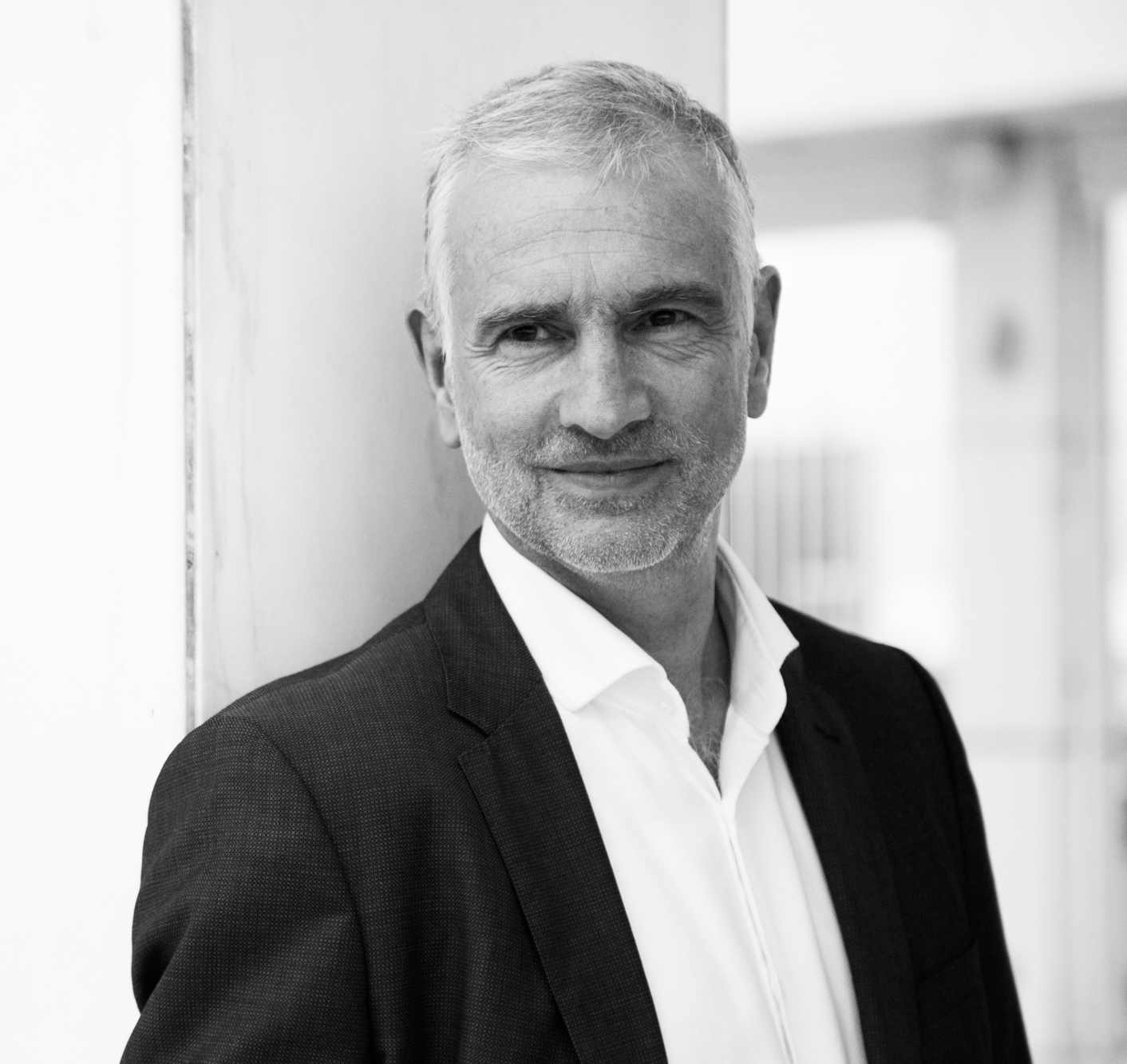BIOGRAPHY
Greek BORN Stefanos Tsialis, son of a Danish Mother and a Greek Father, grew up with impressions of two very different European cultures and made this openness his trademark.
After his first engagement as assistant conductor and director of studies at Meiningen State Theatre, in 1996 Stefanos Tsialis received a scholarship from the Richard Wagner Foundation. From 1997 to 2004, he was chief conductor of the Central German Chamber Philharmonic, while from 2001 to 2004 he was also permanent guest conductor of the Berlin Symphony Orchestra. He subsequently returned to Meiningen State Theatre as First Kapellmeister and Deputy General Music Director from 2005 until 2009. From 2009 to 2013, he was Chief Conductor and Artistic Director of the Thuringia Philharmonic in Gotha whereas from 2015 till 2019 he was its permanent guest conductor.
He served as the Chief Conductor and Artistic Director of the Athens State Orchestra from 2014 to 2020. During his six year tenure there, he succeeded in increasing audience numbers by more than 60 percent despite a difficult economic climate, and improved the artistic quality of the ensemble beyond measure. This was due in no small part to his contacts with musicians of the calibre of Vladimir Fedoseyev, Vladimir Ashkenazy, Christoph Eschenbach, Martha Argerich, Leonidas Kavakos, Maxim Vengerov and Elisabeth Leonskaya, who accepted his invitations to Athens on multiple occasions. The improvement in quality of the Athens orchestra also resulted in it receiving regular invitations to attend prestigious international festivals such as the ‘Festival of Flanders’, the ‘Festival Pianistico Internazionale di Brescia e Bergamo’, the ‘Marvao Festival’ and the ‘Enescu Festival’ in Bucharest, where it performed under his baton in September 2021. The press described the ensemble’s music-making as “a revelation”.
Stefanos Tsialis has worked with around 100 orchestras in many EU countries as well as in Canada, the US, Russia, South Africa, Turkey and others. They include the Montreal Symphony Orchestra, the Copenhagen Philharmonic Orchestra, the Qatar Philharmonic Orchestra, the MDR Radio Symphony Orchestra in Leipzig, the Hanover Radio Philharmonic, the German Radio Philharmonic, the Hamburg Symphony Orchestra, the Berlin Symphony Orchestra, the Vienna Tonkünstler Orchestra, the Winnipeg Symphony Orchestra, the Slovenian Philharmonic, the Aarhus Symphony Orchestra, the Nuremberg Philharmonic, the Dortmund Philharmonic, the Duisburg Philharmonic, the Gerrman State Philharmonic Ludwigshafen, the Robert Schumann Philharmonic Chemnitz, the Saarland State Orchestra, the Stuttgart Philharmonic, the Nuremberg Symphony Orchestra, the Stavanger Symphony Orchestra, the Staatskapelle Weimar, the Philharmonic Orchestras of Teatro Comunale di Bologna and Teatro Massimo Bellini, the Haydn Orchestra in Bolzano, the Belgrade Philharmonic and the George Enescu Philharmonic Orchestra in Bucharest.
Engagements in the current seasons 24/25 and 25/26 include reinvitations to work with the NDR-Radio Philharmonic (during the Schleswig-Holstein and the Mecklenburg-Vorpommern Music Festivals), the Hamburg Symphony, the Athens State Orchestra, the German Radio Philharmonic, the Capitol Symphony Orchestra in Offenbach and the Babelsberg Film Orchestra. He will also be working among others with the Weimar Staatskappelle, the Robert Schumann Philharmonic in Chemnitz, The Göttingen Symphony Orchestra, the Wuerttenberg Philharmonic in Reutlingen, the North German Philharmonic in Rostock, the Hof Symphony and the Babylon Orchestra Berlin.
For more than 25 years, Stefanos Tsialis has also been involved in performing and recording film music. He has specialized in the orchestral accompaniment of silent films from the 1920s and has been a permanent guest conductor of the Babylon Orchestra Berlin since 2022.
Stefanos Tsialis has collaborated with world famous soloists, such as Maxim Vengerov, Viktor Tretyakov, Martha Argerich, Igor Levit, Elisabeth Leonskaya, Anatol Ugorsky, Pierre-Laurent Aimard, David Geringas, Uto Ughi, Petra Lang and Igor Oistrakh.
He has performed at many prestigious festivals, such as the Enescu Festival, the Flanders Festival, the Schleswig-Holstein Music Festival, the Mecklenburg-Vorpommern Festival, the Handel Festival in Halle, the Tivoli Festival in Copenhagen, the Athens Festival, the ‘Braunschweig Classix’ Festival, the Lisbon-Estoril-Festival, The Marvao Festival and the Hamburg Music Festival.
In 2023, he took over the artistic direction of the ANΩ Organ Festival on the islands of Syros and Santorini in Greece. 2024 he founded the youth orchestra ANΩ Festival Orchestra.
Stefanos Tsialis has recorded CDs for the NAXOS, Genuin and Centaur labels. In 2020 and 2021 two recordings with works by Nikos Skalkottas performed by the ASO under his batton were released by NAXOS receiving excellent critics: „Recorded with due clarity and immediacy, this release is an ideal way into a defining period of Skalkotta’s musical evolution, and an ideal introduction to his orchestral work in general“(Grammophone Magazine), „you really must hear this. It’s a revelation“ (ClassicsToday.com).He has also appeared in television and radio recordings for German public broadcasters ARD, Deutschland Radio Kultur, Arte, MDR and NDR as well as broadcasters in Greece, Italy, Turkey, Slovenia, Romania and South Africa.
In his operatic work, Stefanos Tsialis has collaborated with directors such as Peter Konwitschny, August Everding and Christine Mielitz. Developing a repertoire of 60 works, he has conducted a host of operas including Elektra, Salome, Wozzeck, Jenufa and Mona Lisa.
In 1995 he conducted the German premiere of Mikis Theodorakis’s opera Medea in Meiningen. This was to be the start of a long working association with the composer. Today, Stefanos Tsialis is regarded as one of the leading interpreters in the world of his countryman’s work.
He was born as the son of a danish mother and a greek father in Hermoupolis (Greece) in 1964. After studying piano at Thessalonica New Conservatory and musicology at Copenhagen University, he went on to graduate with distinction from Vienna Academy of Music as a conductor and répétiteur, and attended masterclasses with, amongst others, Leonard Bernstein, Vaclav Neumann and Rolf Reuter. He speaks eight languages.

